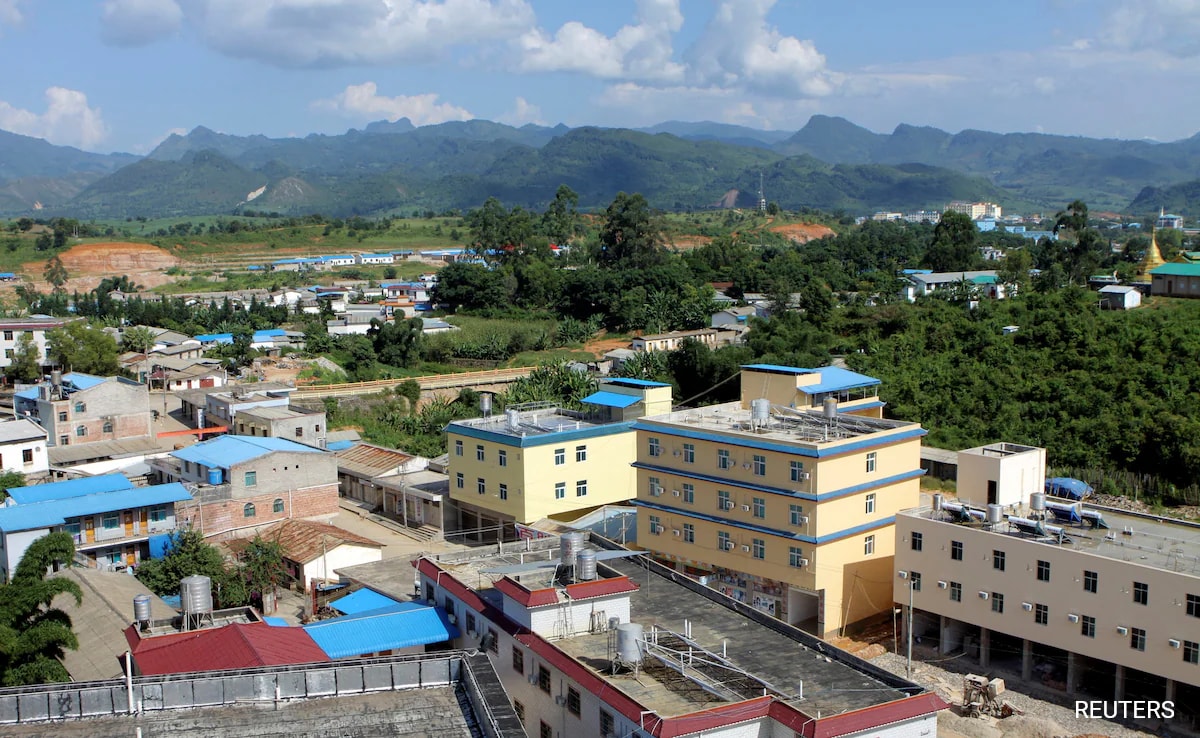
Myanmar shares borders with Manipur, Arunachal Pradesh, Mizoram, and Nagaland (File).
New Delhi:
The Union Home Ministry on Thursday afternoon cited “internal security” and recommended the suspension of the India-Myanmar Free Movement Regime – which allows citizens from either nation to cross the border and travel up to 16km into the other without documents like passports or visas.
“It is Prime Minister Narendra Modi’s “resolve to secure our borders,” Home Minister Amit Shah said, “Ministry of Home Affairs has decided Free Movement Regime (will) be scrapped to ensure internal security of the country, and to maintain demographic structure of north-eastern states.”
It is Prime Minister Shri @narendramodi Ji’s resolve to secure our borders.
The Ministry of Home Affairs (MHA) has decided that the Free Movement Regime (FMR) between India and Myanmar be scrapped to ensure the internal security of the country and to maintain the demographic…
— Amit Shah (@AmitShah) February 8, 2024
Earlier this week Mr Shah said India will fence the entire 1,643-km Myanmar border – as part of the Modi government’s plan for “impenetrable borders” and build a patrolling track next to the barrier.
The Home Minister said a 10-km stretch in Manipur’s Moreh has already been fenced, and two pilot projects that involve a “hybrid surveillance system” – each covering one kilometre – are in operation.
“Additionally, fence works covering approximately 20km in Manipur have been approved.”
READ | India To Fence Entire 1,643-Km Border With Myanmar: Amit Shah
The suspension of the FMR and fencing of the border follows ethnic violence in Manipur last year between the Kuki-Zo tribes, who share ethnic ties with communities in Myanmar’s Chin State, and the Meiteis. Nearly 200 people were killed in those clashes and tens of thousands were displaced.
The Meiteis have argued that unchecked entry of illegal immigrants from Myanmar – using the FMR – over a period of decades was one of the factors behind the violence. The Kuki-Zos have refuted this charge and have accused Chief Minister N Biren Singh of inciting the Meitei community for votes.
Mr Singh’s administration has also backed scrapping of the FMR and fencing of the border, claiming insurgents from Myanmar, as well as illegal immigrants and drug traffickers are misusing the policy.
Speaking to NDTV last month, Mr Singh blamed earlier governments (he did not name the Congress) saying, “… centre at that time left us alone. There is (still) no security. There is Assam Rifles… but they can’t handle counter-insurgency and guard the border. And now we have militants…”
READ | “If There Was Border Fencing…”: Manipur Chief Minister’s Jab OFMR
Government sources have also said nearly 600 Myanmar Army soldiers have crossed into India in the past few months, and have taken refuge in Mizoram’s Lawngtlai district after losing battles with Arakan Army militants – an ethnic armed group in the western Myanmar’s Rakhine.
Manipur’s neighbour, Mizoram, however, told the government it will oppose any move to remove the FMR or fence the border. Chief Minister Lalduhoma, elected in November, has said it is incorrect for people of the same ethnic group (living either side of the border) to be separated.
Mizoram shares a 510-km-long border with Myanmar, Manipur 390 km, Arunachal Pradesh 520 km, and Nagaland 215 km.
What Is India-Myanmar Free Movement Regime
The FMR allows people entry without visa and passport. It began as a system to allow tribes with shared kinship, social and ethnic ties on both sides of the border to visit their families.
NDTV Explains | Why India-Myanmar FMR Will Be Scrapped
The Free Movement Regime was implemented in 1970 and revived by the Narendra Modi government in 2016 as part of its ‘Act East’ policy,
NDTV is now available on WhatsApp channels. Click on the link to get all the latest updates from NDTV on your chat.




